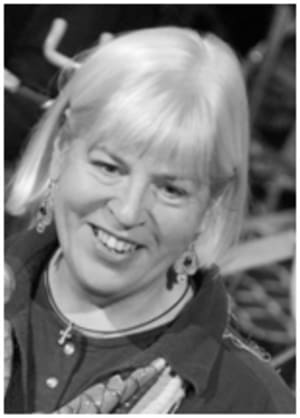 |
Some exciting news, for anyone who reads Canadian poetry or wants to encourage others to do so: Wilfrid Laurier University Press is in the midst of bringing out a whole new pocket poetry series that “will help to create and sustain the larger readership that contemporary Canadian poetry so richly deserves.” Each volume contains thirty-five poems from across a poet’s career, chosen by a critic who also provides an introduction; the poet, or, in the case of a deceased poet, a well-known writer on his or her work, provides an afterword. The volumes are visually attractive and easy on both the backpack and the pocketbook.
For instance (and as a good place to begin), one volume that came out a couple of years ago is The More Easily Kept Illusions: The Poetry of Al Purdy. Purdy is the larger-than-life figure, once apocalyptically described as “The Last Canadian Poet,” whose death in 2001 occasioned an outpouring of support not only for his poetry but also for the project of saving his ramshackle A-frame home in the woods near Ameliasburgh, Ontario, as a retreat for writers. In fact, a recent “After Al Purdy” poetry contest’s proceeds went towards the A-frame project.
And I have to tell you that, within minutes of starting into the poems collected in this volume, I was both laughing and crying. From grumpy, curmudgeonly self-mockery when the car breaks down in 20-below weather in “A Typical Day in Winnipeg” to gently wistful friendship in the face of a poet’s bemused dementia in “Earl Birney in Hospital,” Purdy’s hand on the reader’s shoulder is as clear as it is surprising. The beautiful “Horseman of Agawa,” which turns out to be a love-poem to the sensitive and unreachable otherness in his wife, epitomizes the overt blend of humour and awkwardness in Purdy’s work that protects and disguises the profound sensitivity and quizzical nostalgia below the surface. As “Red Leaves” fall, they provide Purdy’s best attempt at an answer to the questions of the universe, “watching them a kind of jubilation / sometimes mistaken for sadness.” It’s only because it’s true that “I am a sensitive man” that he can get away with the bravado of “At the Quinte Hotel”; we know that when he tells us “poems will not really buy beer or flowers / or a goddamn thing / and I was sad”, it’s only half-funny because it hides the deeper reality of his doubled life-experience.
Purdy tosses around the power of poetry in so self-deprecating a fashion that you realize only on a second reading that he knows the power remains—as when he first misreads the “coward trees” at the arctic circle and then, realizing how “they use death to remain alive,” concludes he has been “most foolish in [his] judgements”: “I have been stupid in a poem / I will not alter the poem / but let the stupidity remain permanent / as the trees are / in a poem / the dwarf-trees of Baffin Island” (“Trees at the Arctic Circle”). In any case, in the picture-book loveliness of a summer in British Columbia, he writes that “beauty bores me without the slight ache / of ugliness that makes me want to change things / knowing it’s impossible” (“Depression in Namu, BC”). Despite Purdy’s bombast and his loud ego, his poems often reveal a deep and (I would even say) reverent response to the natural world.
For instance, this is how he writes in “After Rain” of the great blue heron on his lawn:
Of course there’s death
cruelty and corruption
likewise shit in the world
to hell with that
one day at least stands
indomitable as a potato
its light curving
over the roof of the world
a samovar of the sun
enclosing my guest
the great blue heron
including a hunched figure
myself
on some porch steps
between lightning flashes
writing
The introduction and afterword to this volume make fitting bookends: the introduction by a teacher of Purdy’s poetry and the afterword by an editor and friend of the man himself. Robert Budde introduces the reader to Purdy as “your favourite uncle, the one that shocks your parents and teaches you how to smoke.” And he points to the near-meaninglessness of any distinction between Purdy the man and Purdy’s poems: “Purdy the persona, the shambling, roughhouse, and prophetic figure, speaks a shambling, roughhouse, and prophetic poem.” Budde’s perception is spot-on when he says that there is always in these poems “the tension between [Purdy’s] comic, larger-than-life, self-effacing persona and his introspective, philosophical views on history and time. The learned hick. The comedic philosopher.”
Russell Morton Brown’s brief afterword gives a touching vignette of Purdy the autodidact “whose chief subject was himself but who was uncomfortable with the egotism in being so constantly self-referential.” Brown describes Purdy’s having committed a vast storehouse of poetry to memory; his unease with the academy he’d never entered; and his need to remain “one of the boys” at the same time as pursuing the artsy and elitist career of “poet.” It’s a fine tribute, and an honest one. If an introduction and an afterword should taste like the spritzer before a good meal and the small, sweet liqueur after it, then Budde and Brown have between them played the perfect hosts.
And for the Christian reader, this poetry is also an invitation—to meet the poet-next-door, to listen, to grow to love a man whose perspectives are sometimes raucous and in poor taste, often wistful, often outrageously funny, but always honest, sensitive, and worth paying attention to. If poetry is a way of bearing witness to the beauty and pain of the world, then Purdy’s poems witness profoundly, and with disarming simplicity: you don’t have to be a sophisticated reader to warm to them.
“A poem makes a grand affirmation that not all the answers are in, that mystery abounds, and we are on the edge of it all the time,” writes Maria Lichtmann in The Teacher’s Way; it particularly behooves the Christian reader, then, to learn to receive such poetry as an honoured guest. What does this poem hold out to me? What can I offer in return? These questions, present in every reading of creative literature, are versions of the questions I’d say we need to ask ourselves also in every relationship of our lives, as we learn to receive the stranger and love our neighbour. They are the questions of love which Purdy the learned hick offers us a myriad opportunities to practice answering.

